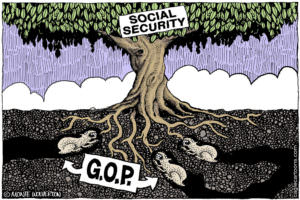Are You One of a Growing Number of Workers Misclassified as an Independent Contractor?
Without workers’ compensation, health insurance and unemployment insurance, independent contractors are more vulnerable than workers classified as employees. But in some instances, benefits that have been denied can be recovered. Bill Dimmick / CC BY-ND 2.0
Bill Dimmick / CC BY-ND 2.0
Without workers’ compensation, health insurance and unemployment insurance, independent contractors are more vulnerable than workers classified as employees. But in some instances, benefits that have been denied can be recovered.
One of the problems with independent contractors, writes author Sheila McClear at The Guardian, is that “they are often misclassified.” She had the feeling she was misclassified when she was laid off from a “popular blog” at the end of 2008. She was rejected for benefits, “with an explanation stating that I was not an employee and therefore not eligible for unemployment insurance.”
Eventually, she discovered the IRS’s “20-Factor Test,” which determines whether a worker is an employee or an independent contractor.
“It turns out I had been a real, live employee,” McClear writes. “It wasn’t a moment of shock but more of a ‘duh’ feeling. The company was young, flying by the seat of their pants and they weren’t about to give away anything they didn’t have to.”
… as part of the 20-Factor test, to fit the description of an employee, I had to have set [hours] of work – in my case, from 9.30am to 6pm. I had to work full time to complete my duties. I also had “instructions,” or a boss, someone who gave me directions on “when, where, and how” to perform my work. However, the company didn’t supply us bloggers with the tools to do our work like they would with employees – we used our personal computers.
We didn’t receive healthcare or any other benefits. If we called in sick, we’d lose whatever money we would have earned in page views that day. That said, being paid by the “hour, week or month” indicated an employer-employee relationship, according to the IRS, and we were paid monthly.
The way I won unemployment was … long and tedious: I printed out old emails from my editors, printed out blog posts to show that I worked every day and bank statements showing direct deposits from the company, since I never received pay stubs. The process took so long that one day, I woke up to $7,000 in my bank account – back pay for the grim victory of unemployment benefits.
“Getting a 1099 instead of a W2 doesn’t mean you don’t have a shot at certain benefits, should you have the tenacity to go after them,” McClear concludes.
— Posted by Alexander Reed Kelly.
Your support matters…Independent journalism is under threat and overshadowed by heavily funded mainstream media.
You can help level the playing field. Become a member.
Your tax-deductible contribution keeps us digging beneath the headlines to give you thought-provoking, investigative reporting and analysis that unearths what's really happening- without compromise.
Give today to support our courageous, independent journalists.





You need to be a supporter to comment.
There are currently no responses to this article.
Be the first to respond.